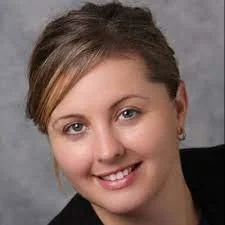Sandra Nelson, CPA, CGA, MBA
Current Chair, Ontario University Professional Procurement Management Association
How did procurement come to be a part of your professional life?
Truth be told, I hadn’t planned on becoming a procurement professional. For a long part of my career, my focus had been on implementing, maintaining, and managing financial systems. Even when studying for my CGA (now CPA) designation, my interest had been in information systems and internal controls. Nearly ten years ago, I was asked to lead the implementation of an eProcurement platform for our institution, and it was through that project that I came to learn about procurement and the complexities of this landscape – both operationally and strategically. Shortly after we went live with the system, I was invited to join the team to lead the strategic transformation of Purchasing Services to Procurement Services. Since then, I have not looked back! This position is both personally and professionally enriching, particularly because public procurement continues to evolve and change. Every day is a new learning experience, and that is what fuels me in my professional journey.
What specific challenges do you have procuring for your organization?
I think the biggest challenge is upholding the spirit and requirements of public procurement while simultaneously meeting the needs and expectations of our clients. We are the professionals in this sphere, and as such, we understand the rules, the risks, and the potential complexities. We often expect our clients to understand all of that as well, and it’s an unrealistic expectation. We hope they know the basics and that they come to us for help – beyond that, it is our job to facilitate the process as seamlessly and efficiently as possible.
Then, I’d say the second biggest challenge, which stems from the first, is having enough time to appropriately plan the procurement. Mathematically, it is near impossible to conduct a large dollar value public procurement in less than 2 months – the amount of time required to elicit and articulate requirements, draft documents, post, evaluate, and negotiate adds up to a significant amount. Unfortunately, not many people understand that and so we often see requests that come with a built-in expectation that the process will only take a few weeks. Education, training, and communications, delivered in a simplistic way, is the best possible strategy to alleviate both of these challenges.
Third on my list would be resourcing – from hiring talented individuals to retaining talented individuals, and frankly, having enough talented individuals to support growing volumes and complexities. Lean funding models in the broader public sector combined with the pandemic having raised market expectations with respect to compensation practices have only exacerbated an already challenging resourcing situation.
What has been the most significant/surprising aspect you have found in higher education procurement?
I would have to say the community. Having been a part of the university sector for over 20 years, I have been a member of different peer communities, but few have been as supportive, connected, and collaborative as the procurement community in higher education – both at the broad, strategic level and the transactional level. I wasn’t expecting this level of collaboration considering we all work in a competitive environment. As someone who had little experience in procurement when I made the transition, having colleagues from across the city, province, and country, whom I could reach out to at any time, has been a tremendous help in navigating all the changes that have occurred in this space over the last few years.
What procurement process changes have you made in recent years?
I don’t think we have enough space to really go into them all – my task eternal, like many of our peers, is to enhance the strategic alignment of our services to the goals and objectives of the institution and the sector. As I mentioned, that started with implementing an eProcurement platform to digitize our environment and enhance spend visibility. From there, we’ve expanded our payment options with suppliers, revamped all of our processes and documents, prioritized the adoption of collaborative purchasing options, and are exploring better methods to manage contracts and contract performance. Most recently, we have overhauled our surplus program to align with the sustainable goals of the university and we are in the early days of forming our Accessible Procurement Advisory Group. There is just so much happening in our space that you really find yourself oscillating between continuous improvement and wholesale change.
What are your thoughts on the future of Public Procurement?
It is an exciting time to be a procurement professional! I believe that our profession has a vital role in rebuilding the economy, reducing the environmental impacts of our purchasing behaviours, and enhancing the inclusivity and accessibility of public opportunities. Our role has never been as much in the forefront as it has been over the last few years, and I believe that will continue as we demonstrate how we can facilitate realizing some of society’s broader goals (e.g., UN sustainable development goals). That means we need to develop a pipeline of talented individuals that are passionate and invested in making their contribution to society, and so our focus as a profession needs to also emphasize training, education, and career opportunities in our industry in a way that appeals to those who are only just starting to think about their future.
How does OUPPMA support you in your role as a Procurement professional?
OUPPMA has supported me in so many ways – from providing collaborative and learning opportunities for professional development, to giving me personal opportunities to grow as a leader and advocate. Our community is genuinely caring, helpful, and inclusive, and we are always trying to stretch ourselves, do better and make an impact. Most of all, we share ideas and knowledge in a way that naturally raises the bar across the sector. I am grateful for this community!


